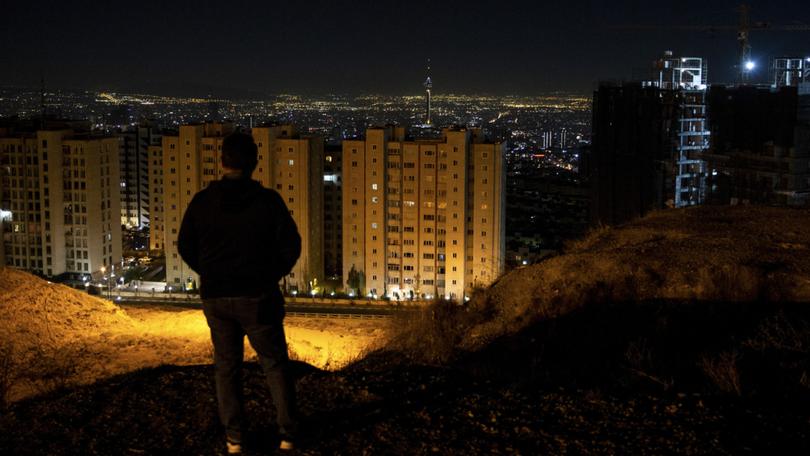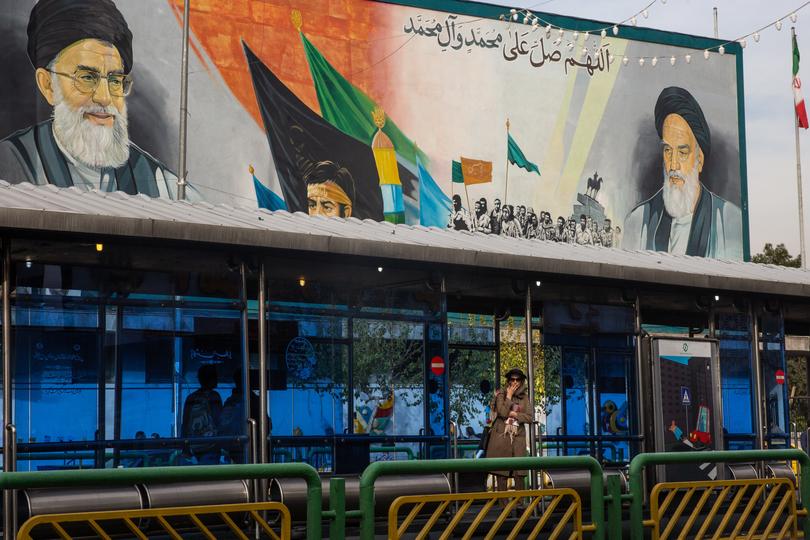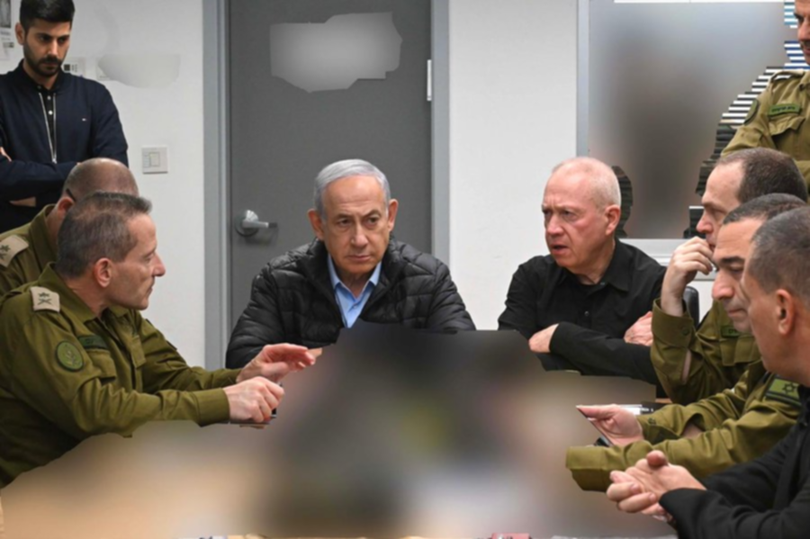THE NEW YORK TIMES: Israel’s ‘Shadow War’ enters a new era of strife
Israel’s retaliatory attack on Iran marked the start of a new and more dangerous phase in the two countries’ yearslong conflict, but it appeared to have stopped short of prompting an all-out war, analysts said.

JERUSALEM — Israel’s retaliatory attack on Iran on Saturday morning marked the start of a new and more dangerous phase in the two countries’ yearslong conflict, but it appeared, at least for now, to have stopped short of prompting an all-out war, analysts said.
The attack was the first time that Israel has publicly acknowledged conducting a military operation inside Iran, after years of maintaining a strategic silence about its assassinations and acts of sabotage on Iranian soil. It was also one of only a handful of attacks by a foreign air force in Iran since its war with Iraq in the 1980s.
Although it was a significant moment, Iran did not immediately set a time frame for a retaliation. The Iranian foreign ministry said that while Iran was “obliged to defend itself,” it was aware of its “responsibilities for regional peace and security,” avoiding the kind of bombastic language that characterized Iran’s initial responses to previous Israeli attacks.
Sign up to The Nightly's newsletters.
Get the first look at the digital newspaper, curated daily stories and breaking headlines delivered to your inbox.
By continuing you agree to our Terms and Privacy Policy.That eased fears that an uncontrollable conflict was about to break out, even if the prospect of such a clash has edged ever closer.
“The years of shadow war have fully entered open conflict — albeit a managed conflict, for now,” said Ellie Geranmayeh, an Iran expert at the European Council on Foreign Relations, a Berlin-based research group. “Tehran can swallow these strikes against military facilities without retaliating in a way that invites further Israeli action,” she added.
After weeks of pressure from the United States to reduce the scope of its attack, Israel avoided striking sensitive nuclear enrichment sites and oil production facilities in retaliation for the large barrage of ballistic missiles that Iran fired at Israel early this month.
On Saturday, Israel’s fighter jets focused instead on roughly 20 military installations, including air defense batteries, radar stations and missile production sites, according to Israeli officials. The extent of the damage was unclear Saturday; Iran said the attacks also killed four of its soldiers.

The comparatively contained focus of those attacks allowed Iranian institutions to project a sense of normality Saturday morning. The aviation authority reopened Iran’s airspace, and the state-run news agencies broadcast images and footage of life returning to normal — all signs, analysts said, that Iran’s leadership was trying to play down the significance of Israel’s attack and reduce domestic expectations of a major Iranian response.
“This is the beginning of a new phase, a dangerous one, with many more sensitivities,” said Yoel Guzansky, an Israeli expert on Iran at the Institute for National Security Studies, a Tel Aviv, Israel-based research group. “But the music that I hear from Iran is basically saying, ‘Oh, this is nothing.’”
As a result, he added, “it is possible for the two sides to close this round, at least, and that we will not see an Iranian retaliation — or if we’ll see it, it will be small in scale.”
Still, analysts warned that even if the latest escalation ebbs, it has edged Iran and Israel further along a path toward an unmanageable conflict.
Israel is still locked in a war with Hezbollah, Iran’s ally and proxy in Lebanon, where Israeli forces are conducting extensive air and ground operations. And it is still fighting in the Gaza Strip against Hamas, another ally of Iran. Those conflicts have no end in sight, and either of them could set off further escalations between Israel and Iran, which has proved increasingly willing to attack Israel in defense of its partners.
For years, the two countries fought a clandestine war in which each side undermined the other’s interests and provided support for the other’s opponents while rarely taking responsibility for their own attacks. That covert conflict turned into open confrontation after Hamas attacked Israel last October, unleashing Israel’s devastating counterattack in Gaza and setting off a regional clash among Israel, Iran and its proxies.
The war in Gaza prompted Iran’s other proxies in the Middle East, including Hezbollah, to strike Israel in solidarity with their Palestinian ally. In turn, Israel scaled up its attacks on Iranian interests around the region, leading to direct exchanges between the two countries, first in April and now in October.
Some analysts fear that Israel, though comparatively restrained Saturday, was setting the stage for a bigger strike following the U.S. presidential election in early November. The vote will set in motion a transition of power during which Washington’s influence and focus on the Iran-Israel conflict will be diminished.
By damaging Iran’s air defenses and radar system, Israel has made it easier for its fighter jets to attack Iran in the future, a move that may deter Tehran from responding forcefully, embolden Israel to try further attacks, or both.
“There will be a sigh of relief across Iran and the region that the U.S. managed to restrain Netanyahu for now,” Geranmayeh said, referring to Prime Minister Benjamin Netanyahu of Israel. “But the fear is that this is a temporary restraint leading up to the U.S. elections. The ‘lame duck’ phase ahead could be a moment where we see renewed Israeli attacks inside Iran — as a perceived golden window to further deplete Iranian capabilities.”

Netanyahu faces pressure from inside and outside his government to deal Iran a more forceful blow, amid fears in Israel over Iran’s efforts to build a nuclear bomb and its support for Arab militias that oppose Israel’s existence.
Netanyahu was once seen as a risk-averse leader who was wary of initiating extended foreign wars. But his reluctance to agree to a truce in Gaza over the past year, coupled with his recent decision to invade Lebanon, have led critics to claim that he is now more prone to military adventurism abroad to deflect from domestic criticism at home.
Just hours after the attack Saturday, some Israeli politicians were already pushing Netanyahu to mount a more powerful strike on Iran, arguing that the military had not gone far enough.
Yair Lapid, a centrist opposition leader in Israel, praised the air force for its attacks but said it had been a “mistake” to limit them only to military sites.
“We could and should have made Iran pay a much higher price,” Lapid wrote on social media. “Iran is at the head of the axis of evil and must bear a heavy cost for its aggression.”
Itamar Ben-Gvir, a far-right government minister, later expressed a similar sentiment, describing the strikes as “an opening blow” that should be followed by further strikes. The government has a “historic duty to remove the Iranian threat to destroy Israel,” Ben-Gvir said in a statement.
Still, other Israeli leaders praised the government for showing restraint and avoiding an unmanageable, high-intensity conflict.
The strikes “impacted Iran’s defensive and offensive capabilities without dragging us into a prolonged conflict, which is not within Israel’s national and security interests,” wrote Yair Golan, a former deputy chief of the Israeli military who is now the leader of a left-wing political party.
This article originally appeared in The New York Times.
© 2024 The New York Times Company
Originally published on The New York Times
